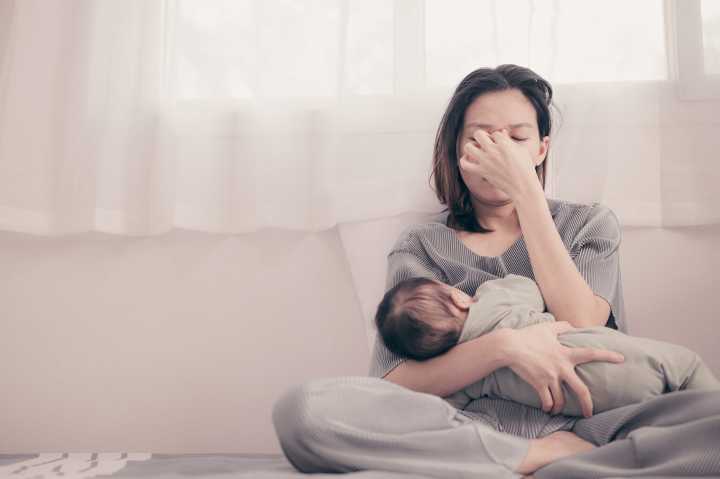Postpartum Depression: Causes, Symptoms & Treatment

It is estimated that one in seven women experiences postpartum depression. A child’s birth triggers a plethora of intense emotions, ranging from excitement and joy to fear and anxiety. But it can lead to an unexpected outcome — depression. Postpartum “baby blues” after childbirth is fairly common in new moms. Mood swings, crying spells, anxiety and difficulty sleeping are its symptoms. Some women may experience a more severe form of depression known as postpartum depression (PPD). Rarely, postpartum psychosis also may develop.
Postpartum depression isn’t a defect or a weakness. It’s merely a complication of giving birth. A single cause of postpartum depression can’t be pinpointed, but physical and emotional issues are known to play a role. There’s a dramatic fall in estrogen and progesterone in the body that may contribute to postpartum depression. Even thyroxine can drop sharply, resulting in feeling of fatigue, sluggishness and depression. Sleep deprived and overwhelmed mother may be inconvenienced by minor problems resulting her to be put on the edge. They may feel anxious to care for a new-born, feel undesirable, these issues can also contribute to postpartum depression.
Certain women are more prone to develop PPD; women with a history of depression, either during pregnancy or at other times or history of mood disorders in their blood relations, bipolar disorder, stressful lifestyle and interpersonal relationships, complicated pregnancy, special need child, financial constraints, unwanted pregnancy.
People with depression may not be aware or are hesitant to acknowledge that they’re depressed. Untreated PPD can have a ripple effect on each member of the family, including the new born. For example, likelihood of chronic depressive disorder in mothers, paternal postpartum depression. The children bear the brunt of their mothers’ mental health in the form of sleep problems, colic, temperamental difficulties, excessive crying, and delays in language development as well as emotional problems.
Women with PPD feels sad, worthless, hopeless, guilty, excessive worry, loss of interest in hobbies or things they once enjoyed, appetite changes, loss of energy and motivation, sleep troubles or excessive sleep, unexplained bouts of crying, lack of concentration, thoughts of suicide, lack of interest in their baby or feeling anxious with its presence, thoughts of hurting the baby or feeling like they didn’t want their child. These symptoms sprout feelings of guilt and shame in the new mothers. They may suffer in silence, dismiss their struggles and are reluctant to seek care. This illness takes away a woman’s access to joy, right at the moment she needs it the most.
With proper treatment, most new mothers find relief from their symptoms. The obstetrician and pediatrician plays important roles in early recognition and treatment for PPD. Between 2 weeks and 6 months after delivery is the ideal time to screen for PPD. Post-natal visits and paediatric well-baby visits are opportunities to assess the mother’s clinical status and ensue treatment as early as possible.
Treatment options for postpartum depression are; Therapy, medicines like antidepressants and Electroconvulsant therapy for extreme and refractory cases of PPD. Some Antidepressants can be taken while lactating. It’s imperative to remember that getting help is a sign of strength, and it doesn’t stamp a new mother as a failure of motherhood.
A strong support system comprising of partners, family and friends is very important for these women. They can be the voice of clarity in the fog of postpartum depression. They can observe and recognise the signs of postpartum depression and persuade her to seek medical assistance. Lending a sympathetic ear to her concerns, providing support and help especially with household tasks and babysitting by giving her a reprieve and recuperate. These steps may seem small, but small efforts sustained over time can produce significant results.






